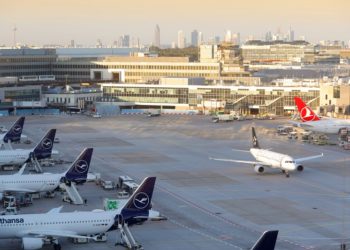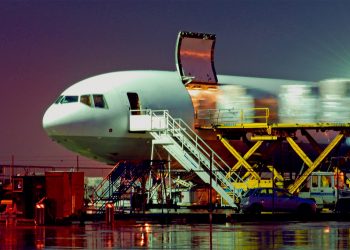A spiraling diplomatic crisis in the Arab Gulf region is already snarling overland logistics along the Qatar-Saudi Arabia border, and regional freight forwarding is running into complications as Emirates and Etihad operations terminating in Doha grind to a halt.
Saudi Arabia, the United Arab Emirates, Bahrain, Egypt, Yemen and Libya all announced that they were cutting diplomatic ties with Qatar today, which, on the aviation side, means denial of airspace rights to Qatar Airways. Without the ability to fly to these countries, or use their airspace, the move is likely to result in longer routes for Qatar Airways, higher fuel bills, and the potential for stranded freight.
An announcement on the Qatar Cargo site stated: “Qatar Airways has suspended all flights to the Kingdom of Saudi Arabia until further notice. For existing shipment bookings, please call your nearest Qatar Airways Cargo office.”
 Etihad Cargo released a statement: “All customers who have cargo booked on Etihad flights to and from Doha are being provided with alternative options and will be contacted directly regarding their specific requirements… All other Etihad Cargo flights, including to the rest of the Middle East, are operating as normal. Any further changes to the status of flight schedules to Doha will be communicated through the appropriate channels. Etihad Cargo regrets any inconvenience caused as a result of the suspension.”
Etihad Cargo released a statement: “All customers who have cargo booked on Etihad flights to and from Doha are being provided with alternative options and will be contacted directly regarding their specific requirements… All other Etihad Cargo flights, including to the rest of the Middle East, are operating as normal. Any further changes to the status of flight schedules to Doha will be communicated through the appropriate channels. Etihad Cargo regrets any inconvenience caused as a result of the suspension.”
“This will complicate regional politics in ways that are yet unforeseen as the Turks, Russians and certainly the Iranians will step into the fray creating new dynamics and new possibilities that are unlikely to benefit Washington,” said Henri Barkey, director of The Middle East Program at The Wilson Center. But from the air freight perspective, the crisis could just as easily push freight towards Turkish and Russian operations.
While ostensibly about support for terrorism, dating back to Qatar’s backing of the Muslim Brotherhood, and extending to extant allegations of support for extremist groups in Syria, both sides face their share of blame. Saudi Arabia has also led its Arab allies in a power struggle with Iran – a contest that Qatar has sought to distance itself from. With Saudi airspace off-limits to Qatari aircraft, Reuters reported that Qatar Airways flights were already being re-routed through Iranian airspace.
 Saudi Arabia was likely emboldened by US President Donald Trump’s sweeping endorsement of its regional aspirations when he visited last month. The Kingdom sees Iran as its primary enemy, and has spent decades working to isolate the Shia-Muslim power to the northeast.
Saudi Arabia was likely emboldened by US President Donald Trump’s sweeping endorsement of its regional aspirations when he visited last month. The Kingdom sees Iran as its primary enemy, and has spent decades working to isolate the Shia-Muslim power to the northeast.
Both sides of the conflict have deep pockets, and can absorb the costs of this dispute, but with oil prices still down, diversification is seen as critical to the long-term viability of the region. Part of what made regional logistics so attractive, and successful, was regional integration, which is now suffering. Even before this latest incident, the Middle East put up some disappointing numbers in IATA’s April air freight report. At just 3.1 percent, the decades of double-digit growth seem to be slipping away, as the region adjusts to a new economic reality. But that new reality was predicated on stability and regional integration…
(By Lewis King, aircargoworld.com)





















































